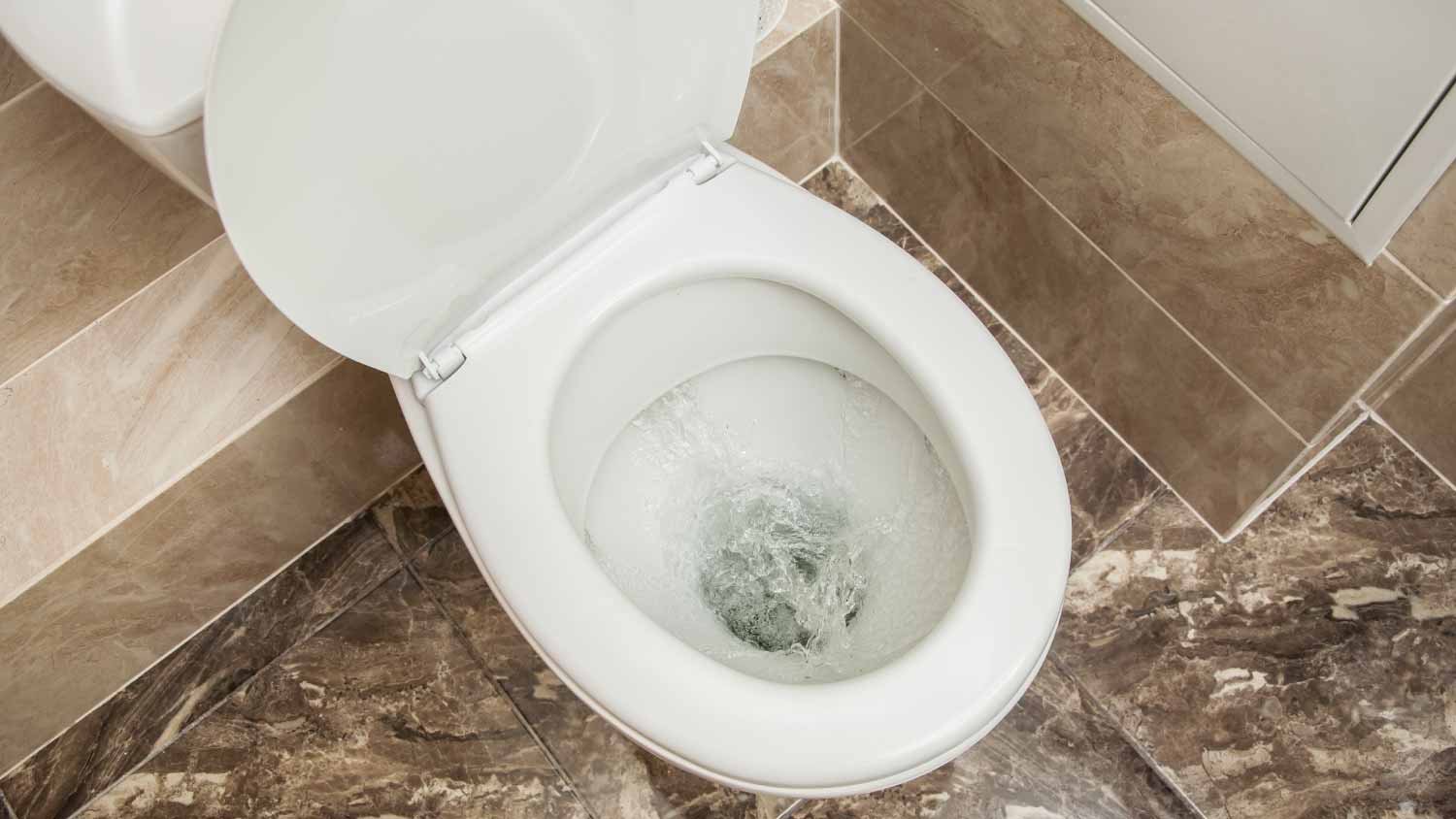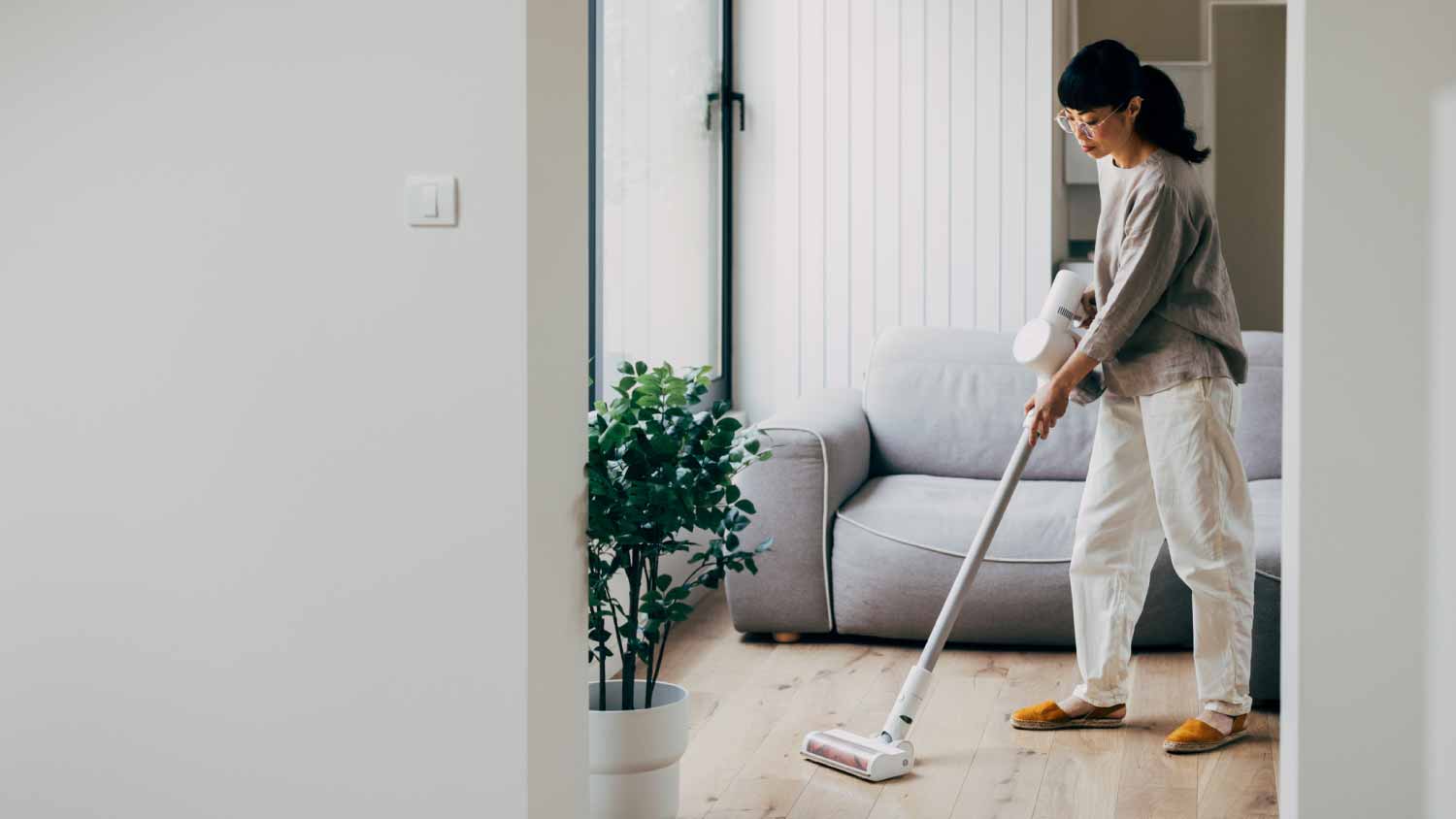
Clean walls are an important part of a well-kept house. Use this wall cleaning cost guide to see what it would cost to hire a professional to get the job done.
Mix, wipe, scrub. Remove hard water stains in the toilet with a few simple steps.


Most city water contains high mineral content, such as manganese, lead, arsenic, chromium, and copper. Such water is called “hard water”. Hard water does not pose significant health risks unless certain harmful chemicals, such as chloride and lead, are beyond the safety level. However, hard water is a nuance for your water pipes, drains, sinks, faucets, and toilets because it leaves buildup and also affects soap and detergent efficiency.
Hard water stains happen when hard water passes through your pipelines and fixtures. As the water evaporates, the minerals stay behind and gradually turn into stains. Left untreated, hard water stains eventually turn into buildups known as calcium deposits or limescale.
Since the main component of hard water stains is calcium, the stains often look like chalky white residue. However, you may also notice brown or green hard water stains as a result of lime buildup.

Visible brown and green are always telltale signs that you need to clean a toilet with hard water stains. Ideally, you should clean out your toilet every week, and that includes removing hard water stains.
If you miss a few routine cleanings occasionally, that is not the end of the world. However, it is best to at least perform a thorough cleaning once a month. Too long of an interval between cleaning allows hard water stains to build up and makes it much harder to remove the stains.
You can easily category the hard water stains in a toilet into mild stains, average-level stains, and stubborn or tough stains. Household items can initiate a basic chemical reaction that breaks down light stains. You can also find specialty products from hardware stores to tackle thicker, harder stains.
Before you add anything to the toilet bowl, always flush first to remove any loose debris. Now, try one of the following methods to clean the hard water stains.
Baking soda and vinegar is the most basic and accessible cleaning combination you can use to tackle hard water stains in your toilet. If possible, use distilled white vinegar or add a few drops of lemon juice for optimal results since a higher acid content breaks down calcium and lime more effectively.
Pour two cups of vinegar into your toilet bowl and stir the water with a long brush. Make sure you hit all the visible stains. Then, let the mixture sit for a minute or two.
Add about one cup of baking soda, then add an additional one or two cups of vinegar. The mixture should start fizzling. Leave the mixture for about ten minutes. Scrub the toilet bowl with a brush so all stains, including those hidden under the brim, are submerged by the mixture.
Wait for another thirty minutes or so for the stains to fully dissolve. Give the bowl another round of scrubbing and flush the toilet.
There are plenty of cleaning solutions you can find in stores, but they are not always healthy. Therefore, we recommend sticking with Bon Ami or Bar Keepers Friend—two of the most effective non-toxic products for cleaning a toilet with hard water stains. Both products work in as quickly as five minutes. Pour the powders into the water, wait, and carefully scrub the toilet bowl to remove all the stains.
As a general rule, you should avoid mixing different powder cleaners together. Also, avoid mixing them with any other solutions. While some may tell you to add vinegar for a better result, it is usually not the safest or healthiest route. Follow the product instructions strictly for safety application. However, it is safe to mix Bon Ami with vinegar.
If you are facing stubborn hard water stains, give laundry borax a shot. Because borax must be applied to a dry surface, you need to turn off the water supply valve on your toilet. Flush the toilet to remove any loose debris and all water. Dry the toilet bowl with a towel or a sponge.
Make your cleaning mixture with half cup of Borax and 1/4 cup of vinegar. Your final product should be a thick, gluey component. Wearing rubber gloves, spread the paste over the hard water stains until they are fully covered.
Wait for 15 to 20 minutes, then scrub thoroughly using a stiff-bristled nylon brush or scrubbing sponge. Turn the water back on and flush the toilet.

The most effective solution to preventing hard water stains from building up is addressing the root cause. You can install a water softener. Water softener removes magnesium and calcium buildup in your water and helps keep your fixtures clean and your plumbing blockage-free. This will take care of your buildup issue throughout the house.
You can also use demineralization cartridges. Simply throw one into your toilet tank, and it will soften your water to slow down or even eliminate hard water stain buildups.
Hard water stains in a toilet are removable without professional help. It is also a very fast process that usually takes no more than fifteen minutes. However, it is a tedious routine task that could easily make you feel like you're stuck in the constant cycle of cleaning. This can be overwhelming, especially if you have a busy schedule.
Therefore, there are merits in hiring a house cleaner for routine cleaning. Also, if your toilet has never been cleaned and the buildup is significant and stubborn, hiring a cleaning contractor may also be more preferable. Alternatively, if you hope to remove hard water stains from various surfaces throughout your home or plan on deep cleaning, a professional will ensure every corner is taken care of and save you massive amounts of time.
From average costs to expert advice, get all the answers you need to get your job done.

Clean walls are an important part of a well-kept house. Use this wall cleaning cost guide to see what it would cost to hire a professional to get the job done.

Don’t let a little candle or incense soot stain your walls or ceiling’s finish. Here’s how to clean soot off walls.

Ammonia for household use can help do everything from making the toughest chores a breeze to repelling pests of all sizes to even feeding your houseplants. Find out some of the best, most surprising ways to use ammonia around the house.

How often should you deep clean your house? Learn what timing factors to consider before deep cleaning your home.

Not sure the benefits of a housekeeper vs a house cleaner? Learn which pro you should hire to help keep your home clean.

Life is messy, but when it comes to pee in the house, it takes on a whole new meaning. Read this to learn how to get urine smells out of your couch.